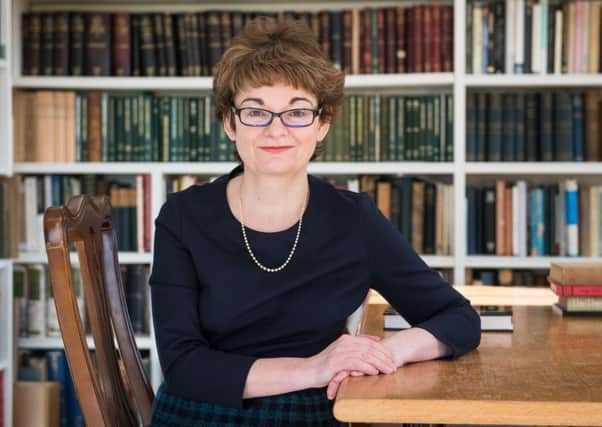Inclusivity on the agenda at St Andrews


That was one the key promises of new university principal Professor Sally Mapstone at her formal installation this afternoon.
Professor Mapstone said she wanted the university to become more inclusive: “We must become more clearly inclusive. This is not something around the edges of what we are as a university; it is central to how we are, and to how we attract the best and the brightest to us at all levels, and how we retain them.”
Advertisement
Hide AdAdvertisement
Hide AdInclusivity and diversity would be at the heart of her decision-making, she said, signalling that St Andrews could and should do more to attract and support students from disadvantaged and non-traditional university backgrounds.
But concerns over funding, particularly in the context of Brexit, dominated her address.
She said she would explore “all credible funding options” for St Andrews as it plans for the future in what she described as uncertain times.
“As a university, approximately 18 per cent of St Andrews’ funding, outside research funding, is provided from the Scottish Government. We are grateful for that funding, and entirely accept our accountability in terms of it, but that figure, the uncertainties of Brexit, and the ongoing governance changes in higher education across the UK, must raise questions about the funding model for this university over the next decades.
Advertisement
Hide AdAdvertisement
Hide Ad“I see it as my responsibility to explore all the credible funding options that are available to us.
Professor Mapstone also expressed concerns about the impact of Brexit academically, describing the university’s relationship with Europe as “fundamental to our origins” but warning that any weakening of the intellectual, cultural, and political contact and collaboration with the EU would lead to “an impoverishment way beyond the financial”.
Some 21 per cent of St Andrews research funding over the last five years has come from the European Union; with funding from European Research Council sources accounting for about 50 per cent of the University’s current portfolio. Twenty-two per cent of the University’s academic staff, and 31 per cent of research staff are from European Union countries.
Professor Mapstone promised to defend the freedom of international students to study at St Andrews.
Advertisement
Hide AdAdvertisement
Hide AdShe said: “There is also a profound case to be made in relation to international students as a whole: that St Andrews, in Fife, is a beacon for a wonderfully international student body, in which nearly half of our students come from over 100 different countries, is something that we celebrate.
“These students become global ambassadors for this university, and for UK higher education as a result of their experiences here. When there is good evidence that international students contribute profoundly to our cultural mix and our economy, current suggestions that those numbers should be reduced seem perverse in the extreme. I will work as hard as I can to defend and retain these relationships and opportunities, at Scottish, UK, and European level, and with our international friends and partner institutions.”